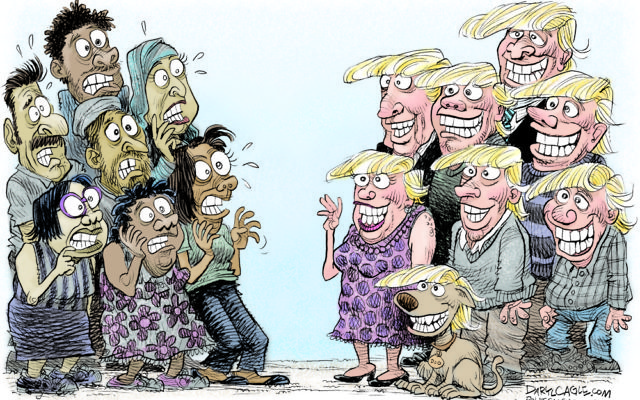Our View: More on Trump
This week’s print issue alloted more space than usual to opinions because so many people are grappling with the meaning of Donald Trump’s presidential victory.
We view it as Hillary Clinton’s defeat. Trump did not present a coherent program to “make America great again,” but Clinton represented a political establishment that has created too many victims and provided too few solutions for too long.
Under Republicans and Democrats alike, rural areas have been whipsawed by weather extremes that have damaged agriculture, by trade agreements that have made it easy for manufacturers to move overseas and by an opioid epidemic that went unnoticed for years until it hit the suburbs. It’s no surprise that voters in those areas opted in desperation for a wild card like Trump instead of more of the same from Clinton. 
Still, Clinton might have matched her plurality in the popular vote with a majority in the Electoral College if so many black voters hadn’t demonstrated with their low turnout that they were fed up. They voted against Clinton and the status quo by staying home Nov. 8.
Despite having Republican majorities in both chambers of Congress, Trump must recognize that he has no popular mandate for any specific proposal. His only mandate is to find some way to respond to the needs of the victimized majority.
A few other election thoughts:
- We’re glad Trump told “60 Minutes” that his supporters who harass people and destroy property should “stop it,” but that isn’t enough. He must declare, over and over, that he disavows discrimination, bigotry and the support of hate groups.
- Overlooked on Election Night was the loss of a genuine neo-Nazi and ex-Klansman, David Duke, who flopped in his bid for the U.S. Senate from Louisiana. Duke received 3 percent of the vote, which gives us a reasonable approximation for the portion of Trump’s support that came from anti-Semites and racists.
It’s a scary total — it means the number of Americans who hate Jews likely exceeds the number of Jews — but it didn’t elect Trump.
- Much has been made of Clinton’s victory in the popular vote. While the much-maligned Electoral College overweights the smallest states and leads residents of noncompetitive states to believe that their votes don’t matter, the system spares us a national precinct-by-precinct challenge of every ballot in the close elections that have become the norm.
This wasn’t just the second election in 16 years that the top vote-getter lost the Electoral College. It was also the seventh time in 18 elections since World War II in which no candidate won a popular majority.
Also, our electoral system isn’t an anti-democratic outlier. In Israel and other parliamentary nations, the prime minister can come from a party that lost the election if he or she can cobble together a coalition.
The United Kingdom, which elects members of the House of Commons by individual district (like the U.S. House) instead of by proportion of the popular vote, could get a prime minister whose party wins a majority of seats despite losing the popular vote.
For those determined to change the system, we suggest skipping a constitutional amendment and instead working at the state level.
No state must use the winner-take-all system. Georgia could pick electors by congressional district, by statewide proportion or by the results of the national popular vote.
If that’s change you can believe in, the General Assembly session is only two months away.




comments